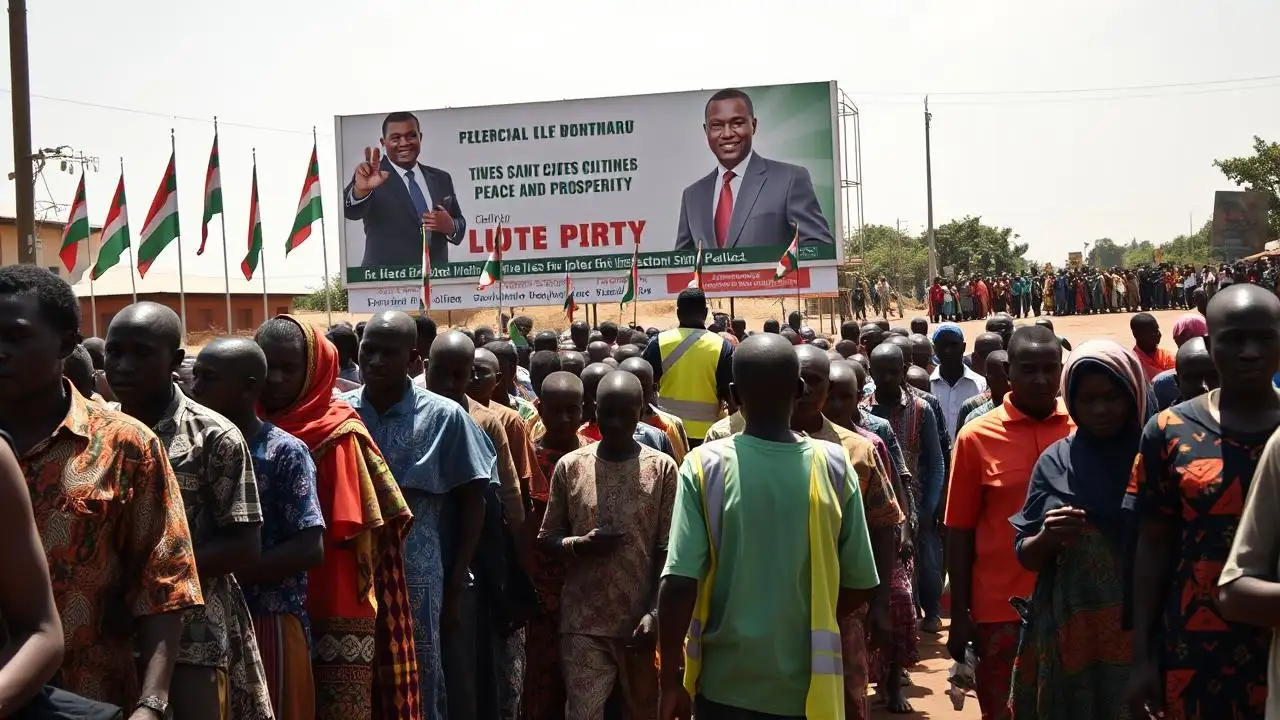News Flash
News Flash

NAIROBI, June 5, 2025 (AFP) - Burundians voted Thursday for a new parliament that was expected to cement the ruling party in power after key opposition figures were barred from running.
The impoverished, landlocked country in east Africa has seen decades of ethnic violence, civil war and authoritarian rule.
A former rebel group, the National Council for the Defense of Democracy - Forces for the Defense of Democracy (CNDD-FDD) of President Evariste Ndayishimiye, has dominated Burundian politics since 2005.
Ndayishimiye joined voters in Gitega province to cast his ballot, saying the large turnout showed "the population is driven by a patriotic spirit" and that "democracy is rooted in Burundi", according to local media.
His government is accused of undermining its main opponent, the National Freedom Council (CNL), which came second at the last election in 2020 and claimed it was cheated.
In 2023, the interior ministry suspended the CNL over "irregularities" in the way it organised its meetings.
Then last year, the CNL ousted its leader, former militia commander Agathon Rwasa, while he was abroad -- a move which he said was orchestrated by the government.
New laws then effectively barred Rwasa and his allies from joining other parties or standing as independents.
A Burundian analyst, who requested anonymity for fear of reprisals, said the ruling party was taking no chances because the elections were happening amid "a very deep socio-economic crisis".
Burundi faces "all sorts of shortages, galloping inflation of more than 40 percent and growing popular discontent," the analyst said.
"I hope the party I voted for will win. We expect them to solve the problems of poverty and the high cost of living," Denise, a woman in her thirties, told AFP.
But some, like Prosper, 64, a retired civil engineer, feared the ruling party staying in power, saying: "The country will continue sinking into crisis."
He said he only cast his ballot because "some officials check if you have voted."
- 'Threats, harassment' -
President Ndayishimiye took over following the death of his predecessor, Pierre Nkurunziza, who had isolated the country with his brutal and chaotic rule since 2005.
While Ndayishimiye was seen as relatively less authoritarian, Burundi's rights record remains poor, with journalists, activists and opposition figures all facing severe repression.
Patrick Nkurunziza -- no relation to the previous president -- head of the Burundi for All coalition, said his members faced "threats, harassment and sometimes even attacks" from a government-aligned youth league known as the Imbonerakure.
A fuel shortage that has largely paralysed the country for nearly three years also made it difficult for candidates to operate, he added.
"In the absence of Agathon Rwasa's CNL, the CNDD-FDD is sure to win," said the analyst.
Most of the other candidates are "token candidates, who are there just to show that democracy is still happening in Burundi," they added.
Burundi experienced decades of ethnic violence and civil war up to 2005.
Under a peace agreement signed in 2000, seats in the parliament are split 60-40 between the two ethnic groups, Hutu and Tutsi.
Burundi remains one of the world's poorest countries with almost two-thirds living below the World Bank's poverty line of $2.15 per day.